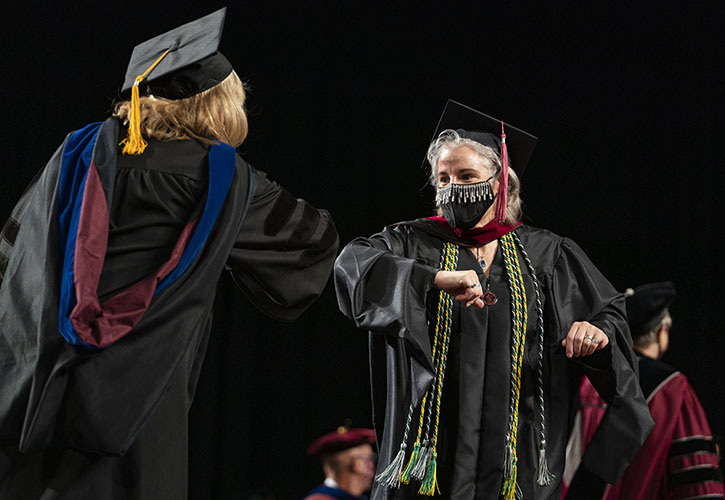By Laura Hartford
A primary concern of adults considering a return to college is whether the value of a degree is worth the time and money required to earn one, particularly when balancing the demands of a busy life. Research suggests that the answer is “yes.”
While programs like Bellarmine University’s online B.A. in Integrated Studies can significantly reduce the cost and accelerate the time it takes to earn a degree, there’s growing evidence that finishing a degree under any circumstances is a wise investment.
Brandon Busteed, education writer for Forbes magazine summarizes, “There’s no better investment on a return than college – not even close. Long-standing economic analyses have shown that people who earn a bachelor’s degree – on average - make considerably more money over their lifetime than those with a high school diploma.” Busteed points to the research of Michael Greenstone and Adam Looney when noting, “an investment in a college degree delivers an inflation-adjusted annual return of more than 15 percent, significantly larger than the historical return on stocks (7 percent) and bonds, gold and real estate (all below 3 percent).”
Similarly, Liberty Street Economics, a blog by economists at the New York Federal Reserve, argues that despite much public debate, college is still one of the best investments available. Co-authors Jaison Abel and Richard Deitz calculate that the rate of return on a college degree “easily surpass(es) the threshold for a good investment,” and describe a “substantial” College Wage Premium: Adjusted for inflation and the demographic differences between bachelor degree earners and those with only a high school education, a typical college graduate earns nearly 75 percent more, with economic benefits lasting over an entire career.
For anyone suspecting that this simply suggests a correlation between high achievement in both the classroom and the workplace, research indicates that economic gains outstrip the cost of college even for the most academically marginal student. Additionally, the benefits are multi-generational. Studies by the National Center for Educational Statistics shows that the children of college graduates are significantly more likely to earn college degrees as well.
Not only do college graduates receive 57 percent more job opportunities, the jobs they land tend to be more recession-proof and, as we are learning, pandemic-proof. These jobs are also easier to find, as they’re more likely to be posted online. Additionally, a college experience provides opportunities to build and maximize professional networks, which can be enhanced by engaging with university career development opportunities.
However, college degrees offer more than simple economic benefits. Many adults return to college in order to gain the satisfaction of meeting a lifegoal or serving as a role model for loved ones, and a number of studies examine the broader personal impact of a college education. The College Board found that Americans with college degrees tend to make healthier choices and to engage with their communities through volunteering and voting. The Robert Wood Foundation discovered correlations between college degrees and outcomes such as longer life expectancies and healthier children. A report by the Lumina Foundation found that, in addition to higher incomes, good health and longer lifespans, college graduates are more likely to have healthcare and retirement benefits, safe jobs, occupational prestige and even greater happiness.
According to a 2014 study conducted by Gallup in partnership with Purdue University, the level of happiness and personal well-being reported by college graduates depended, more than any other factor, on the mentorship and support they experienced while in college. Students who felt that professors cared about their success, made learning engaging, and encouraged them to thrive – along with students who themselves actively engaged with the campus community and took advantage of career development opportunities and other resources – were the most likely to benefit from the positive long-term outcomes of a college education.
There are many paths to financial success and personal well-being. For most people college is a worthwhile investment in a bright future. Choosing the right college, taking advantage of the opportunities it provides, and spending time getting to know the faculty and staff while there, are ways students can enhance the value of that investment.
Bellarmine values these outcomes and is helping more people achieve them. The university has used leading research and best practices to create a degree completion program specifically for adult students with some prior college credit who desire an accelerated online path to finishing their bachelor’s degree.
Benefits include affordable tuition, flexible scheduling, the possibility of earning credit for prior work and life experience, and faculty who are specially trained in the education of adult students.
Click here to learn more about Bellarmine’s Bachelor of Arts in Integrated Studies Degree Completion Program and how to connect with the admission team.
Laura Hartford is Associate Dean of the Bellarmine College of Arts and Sciences.
